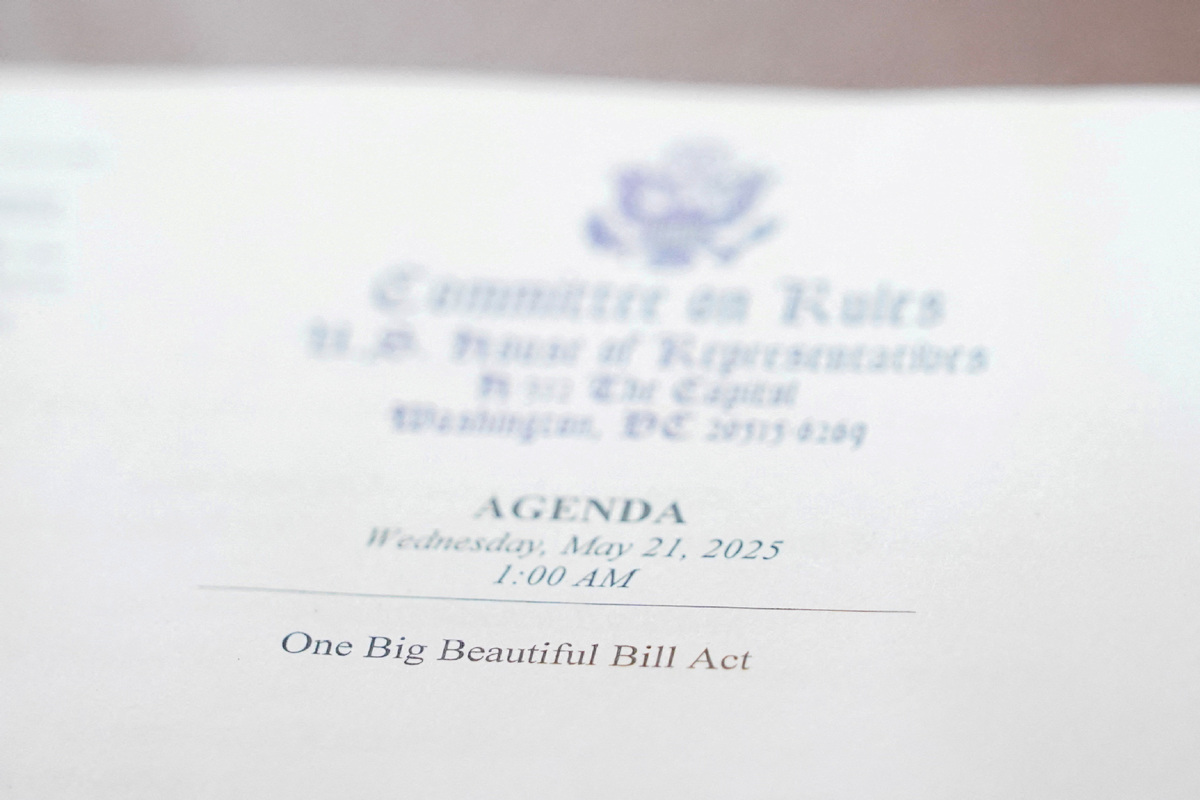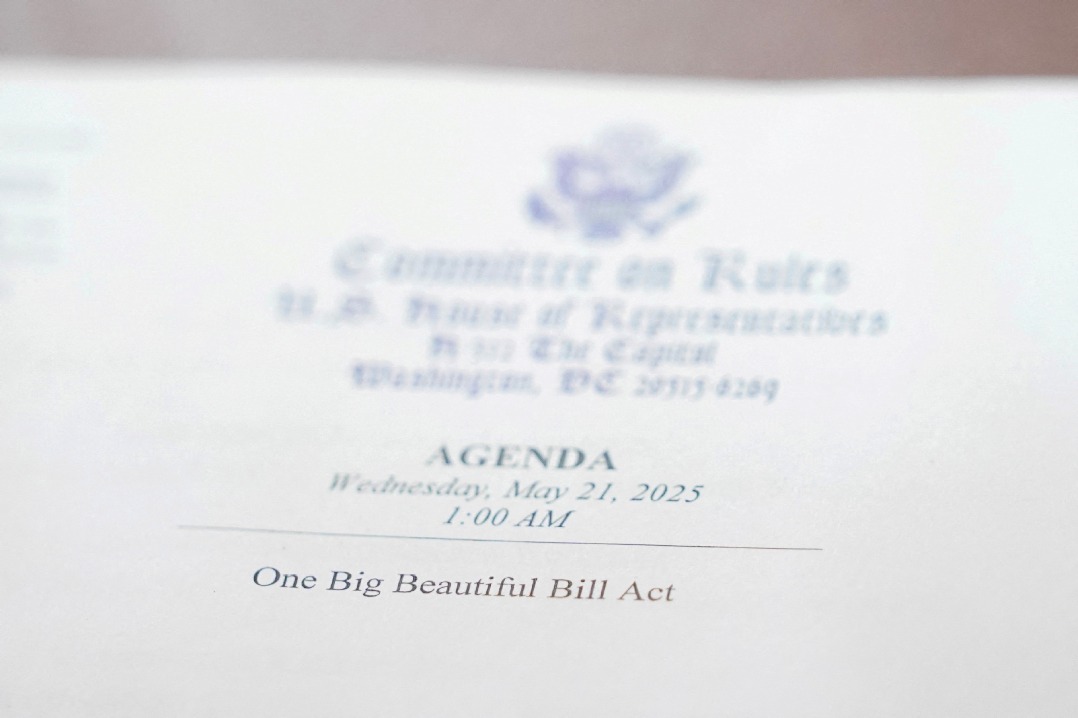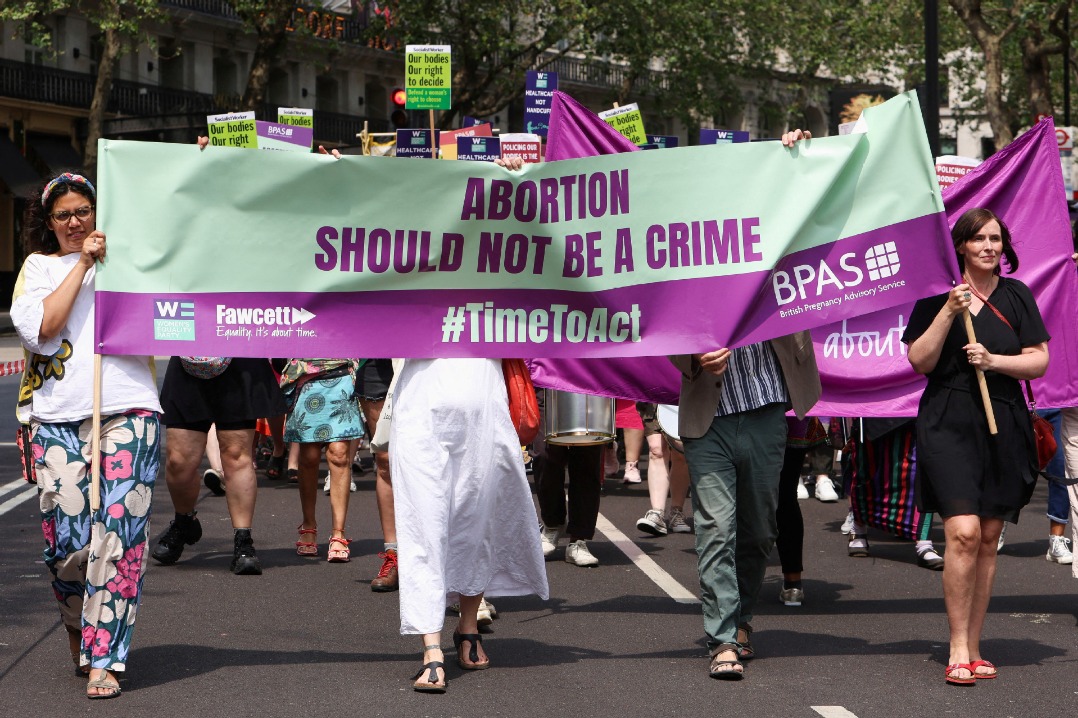Poor to earn less under Trump's budget bill: Analysis


US President Donald Trump's One Big Beautiful Bill Act, which was passed by the House in May, has about twice as many people opposing rather than supporting it, according to a recent poll conducted by The Washington Post and Ipsos.
The poll was conducted between June 6 and June 10 with a random sample of 1,167 adults.
Overall, 42 percent of the surveyed US citizens oppose the budget bill, 23 percent support it and 34 percent have no opinion.
The poll found a large number of US citizens are not aware of the budget bill, with about two-thirds of those surveyed saying they have either heard very little or nothing at all about the bill. About 64 percent of the well-informed said they oppose the bill, and only 33 percent said they support it.
At the "No Kings Day" protest on Saturday in downtown Houston, one man, waving a US flag, held a sign reading: "My taxes should go to NPR, education, healthcare, museums, national parks and helping people. NOT THE RICH!"
That sentiment is not without foundation. According to an analysis released by the Congressional Budget Office on June 12, if the budget bill is enacted as it was passed by the House on May 22, the lowest-earning 10 percent of US households are likely to see their financial resources reduced by $1,600 per year, or 3.9 percent of their annual income. Meanwhile, the bill will boost the government resources going to the highest-earning 10 percent of US households by $12,000 per year, up 2.3 percent.
Some of the income reduction for the poor will be through the Supplemental Nutrition Assistance Program which helps millions of lower-income US citizens pay for groceries every month. The bill calls for a $230 billion cut between 2026 and 2034.
The analysis showed that middle-income households will see increases of $500 to $1,000 every year, roughly 0.8 percent.
Millions more will fare worse under the One Big Beautiful Bill Act beyond what some economists called "the wealth transfer from the poor to the rich".
The analysis concluded that the bill would increase the number of people without health insurance by 10.9 million by 2034 due to cuts to Medicaid and policy changes to the Affordable Care Act, commonly known as Obamacare.
The budget bill proposes cutting federal funding by $793 billion for Medicaid and by $268 billion for Obamacare from 2026 to 2034. The Congressional Budget Office estimated that 7.8 million people will become uninsured due to changes to Medicaid and 3.1 million due to changes to Obamacare. That will lead to a total of 16 million people without health insurance.
Another area facing major funding cuts will be tax breaks for green energy, a policy enacted under the Biden administration.
The budget bill proposes to provide $350 billion to Homeland Security and the Pentagon, including about $175 billion for mass deportation efforts, a move met with resistance recently in Los Angeles.
The US Senate released its own version of the bill on Monday night, asking for even deeper cuts to the Medicaid program.
Not all senators are on board with the bill. Senator Josh Hawley, a Republican from Missouri, expressed his opposition to cutting Medicaid in an op-ed published in The New York Times in May, calling the bill "corporate giveaways, preferences for capital and deep cuts to social insurance".

































